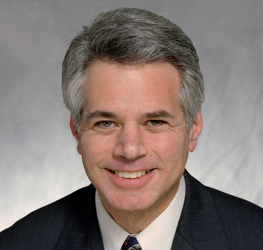Countdown to Release of the Self-Referral Disclosure Protocol
Health care providers have long struggled with the issue of how to deal with the discovery that they have been involved in violations of the Stark law. This problem been exacerbated recently by two prominent developments:
(1) The Office of Inspector General’s (OIG) March 24 2009 “Open Letter,” which announced that the OIG would no longer accept disclosure of a Stark violation in the absence of a “colorable” violation of the Anti-Kickback Statute (and that OIG will require a minimum settlement amount of $50,000)
(2) The Patient Protection and Affordable Care Act of 2010 (PPACA) continued the expansion of the scope of the federal False Claims Act begun in the Fraud Enforcement and Recovery Act of 2009, by requiring the refund of an overpayment no later than 60 days after the date on which the overpayment was identified (or on the date a corresponding cost report is due, if applicable), and providing that any overpayment retained past this deadline effectively constitutes a violation under the False Claims Act
PPACA’s Authorization of a Self-Referral Disclosure Protocol
However, PPACA also contained a new avenue of hope for providers. Section 6409 requires the Secretary of Department of Health and Human Services (DHHS) to establish, by no later than September 23, 2010, a self-referral disclosure protocol (SRDP), under which health care providers may voluntarily report actual or potential Stark violations to the Centers for Medicare and Medicaid Services (CMS). DHHS is required to issue instructions on the CMS Web site regarding the specifics of the disclosure protocol and has indicated it will do so next month.
Under the SRDP, CMS will have the authority to compromise claims in settlement. This is particularly significant as CMS has consistently taken the position that it lacks authority to settle Stark violations for less than the full amount of Medicare reimbursement the provider has received as a result of “tainted” referrals. CMS may consider the following factors in settling Stark disclosures under the SRDP:
- The nature and extent of the improper practice
- Timeliness of the self-disclosure
- Cooperation in providing additional information
- Such other factors as the Secretary of DHSS considers appropriate
Despite a clear mandate from Congress, certain questions await clarification by DHHS. It is unclear how the SRDP will relate to the OIG’s existing self-disclosure protocol (SDP). For instance, will providers be limited to selecting the OIG in disclosing conduct that potentially implicates both the Stark law and Anti-Kickback Statute? Similarly, how will the SRDP impact disclosures to the U.S. Attorney’s Office, which has been a choice of some providers in the past? Second, will a disclosure to either CMS or OIG suspend PPACA’s 60-day repayment requirement or will providers be forced to refund all reimbursement received as a result of tainted referrals and then attempt to negotiate with CMS or OIG? A related question is whether CMS will require providers to enter into a tolling agreement as to Medicare’s reopening period during the pendency of the review under the SRDP. It seems highly unlikely that a provider would be able to resolve a self-disclosure within 60 days of having identified the potential overpayment, so this may represent a pressing concern.
AHA SRDP Proposal
Recently, the American Hospital Association (AHA) issued a proposal for consideration by CMS on how to structure the SRDP. In a July 16, 2010 letter to DHHS Secretary Kathleen Sebelius, the AHA advocated that CMS should implement a two-track review process for Stark self-disclosures, with an expedited review process for noncomplex issues and detailed reviews in more complicated situations.
Levels of Review
The AHA letter proposal stated that an expedited process is appropriate for situations where there is an inadequate writing, but clear evidence exists of a legally binding financial relationship (through contemporaneous records of performance by the parties, supplemented by declarations). Other situations AHA suggested as appropriate for an expedited review include missing signatures, mistaken payments, mistaken non-collection of payment, and holdover leases. However, AHA stressed that the expedited process should be available for any disclosure where the provider can readily demonstrate the existence of an otherwise legitimate, compliant arrangement.
On the other hand, AHA stated that a more detailed review would be appropriate for factually complex situations, such as arrangements with involved payment methodologies, or where the extent to which Stark applies is unclear. The need for a detailed review should be determined on a case-by-case basis.
Mitigating Factors and Stipulated Damages
In addition to the mitigating actors listed in PPACA, AHA recommended that the SRDP take into account the following factors:
- Whether the failure to meet a Stark exception was due to an innocent or unintentional mistake
- Any corrective action taken by the parties
- Whether the services provided were reasonable and medically necessary
- Whether access to a physician’s services was required in an emergency situation
- Whether the Medicare program suffered any harm beyond the statutory disallowance
The AHA letter recommended “stipulated damages,” e.g., up to $10,000, for violations posing the least risk of harm. Such situations could include missing signatures or inadequate writings where the course of dealing indicated the parties had agreed to a financially compliant arrangement. In cases of more substantive violations, CMS should, AHA asserts, still consider the mitigating factors in determining an appropriate settlement.
Finally, the AHA letter advocated that disclosure under the SRDP should satisfy PPACA’s requirement to report overpayments and that PPACA’s 60-day disclosure period be suspended until CMS determines the amount of the settlement.
Conclusion
The AHA proposal makes valuable suggestions for an equitable approach to dealing with technical or other minor Stark violations. This is particularly important in light of the statute’s failure to distinguish between the nature of violations and its imposition of draconian penalties regardless of the gravity of the actual offense. Providers are eagerly awaiting the September issuance of formal guidance from CMS regarding the implementation and structure of the SRDP.
Although the SRDP will not entirely resolve all questions regarding Stark disclosures, it does represent a clear commitment by the government to provide a clearer pathway for disclosures of Stark violations. This offers another opportunity for providers to scrutinize their physician agreements to ensure that they comply with the Stark law. Because of the legal and financial implications of this undertaking, it may make sense for providers to supplement their primary contract review process by obtaining a second opinion from counsel to ensure that a particular disclosure is needed and is handled in the optimal manner.
In anticipation of the issuance of the SRDP, Foley has scheduled a Friday Focus Web conference for October 1, 2010 from 9:30 a.m. – 10:30 a.m. Pacific time on the SRDP and its implications for provider disclosures going forward. Further detail on this important program will be provided as the date approaches.
Legal News Alert is part of our ongoing commitment to providing up-to-the-minute information about pressing concerns or industry issues affecting our health care clients and colleagues. If you have any questions about this alert or would like to discuss this topic further, please contact your Foley attorney or any of the following individuals:
Lawrence C. Conn
Los Angeles, California
213.972.4781
[email protected]
Maria E. Gonzalez Knavel
Milwaukee, Wisconsin
414.297.5649
[email protected]
Richard K. Rifenbark
Los Angeles, California
213.972.4813
[email protected]
Robert D. Sevell
Los Angeles, California
213.972.4804
[email protected]
Heidi A. Sorensen
Washington, D.C.
202.672.5596
[email protected]
Lawrence W. Vernaglia
Boston, Massachusetts
617.342.4079
[email protected]
Judith A. Waltz
San Francisco, California
415.438.6412
[email protected]



